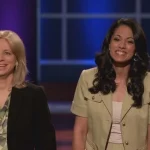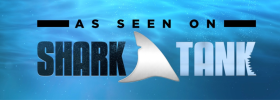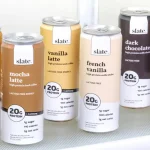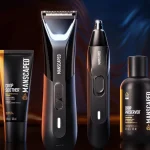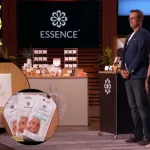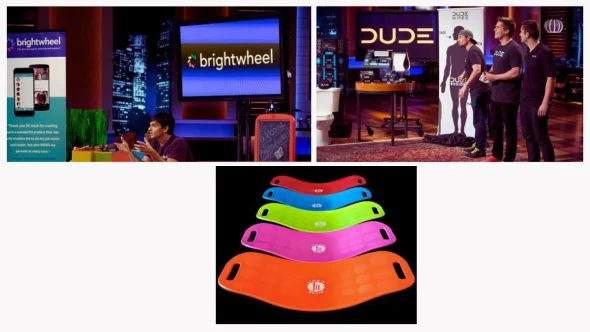
Best And Worst Pitches Of Shark Tank Season 7
Highlights
- Ashton Kutcher and Chris Sacca entered as guest panelists on Season 7 of the show.
- Zipz was a huge deal of the season with a million-dollar investment.
- Pitches like Brightwheel and Dude Wipes bagged great offers, whereas Pavlok and Brellabox faced criticism.
Shark Tank has emerged as a breakthrough entrepreneurial show due to countless new developments in its content. The captivating set of additions continued with Shark Tank Season 7 as well. With names like Ashton Kutcher and Chris Sacca headlining as Guest Sharks, the audiences were hooked to the small screen.
The 29-episode long season was heavily in the news for million-dollar deals (Zipz) and fierce arguments amongst the Sharks. Below is a detailed explanation of the best and worst pitches of Shark Tank Season 7:
Best Pitches: Shark Tank Season 7
Shark Tank Season 7 was packed with a variety of interesting business ideas and pitchers’ negotiation skills. Be it educational apps for kids, fitness equipment, or flushable wipes, here are diverse ideas that were brought to the judges and bagged impressive deals in different episodes:
1. Brightwheel
Brightwheel is one of the best pitches of Shark Tank Season 7 for many reasons. First, the entrepreneur was thoroughly prepared for any questions relating to his company. Second, when two of the investors started arguing in the middle of his pitch, he talked through it to bag a joint deal with both of them.
Dave Vasen made his way to the panelists with his mobile app for preschools, daycares, and families. The investment sought was $400K for 4% equity. In his pitch, Dave gave a product demo showcasing how Brightwheel streamlined operations between parents and teachers and how they could better manage the kids.
Everyone expressed interest in the product except Daymond John and Barbara Corcoran. But knowing Chris Sacca’s background in tech, Dave asked him if he could team up with any of the Sharks. He replied that none of them had anything on their tables through which they could make the partnership soar.
This didn’t go well with Mark Cuban, who then had a severe argument with Chris. Seeing it get heated, Dave maintained his focus and smartly convinced both Mark and Chris to offer $300K each for a $9 million valuation. The investors agreed and finalized the deal at $600K for 6.67% equity.
The business is valued at a whopping $700 million. Plus, its annual revenue is $75 million (as of 2024).
2. Simply Fit Board
In the list of Shark Tank Season 7’s best pitches, Simply Fit Board is in a dominant position. This is due to its highly engaging pitch, in which the judges volunteered to try the product. Plus, the entrepreneurs understood the market segment that they had to target and chose a Shark accordingly.
Linda Clark and Gloria Hoffman, a mother-daughter entrepreneur duo, approached the panelists seeking $125K for 15% equity. Simply Fit Board was an exercise board for burning fat, toning legs, and strengthening the core. By the time of their appearance, it had already earned $1 million through sales.
Made with a landing cost of $9.89, the business had already sold 28,000 boards. The Sharks were impressed by the idea and asked for samples to try the board on their own. After enjoying the experience and hearing the great numbers, Kevin O’Leary made the first offer at $250K for 30% equity.
Lori Greiner proposed the next deal at $125K for 20% equity. She emphasized her strong foothold in both retail and QVC to convince the founders. The mother-daughter duo tried to counter her with 18% equity, but Lori denied it. Ultimately, the deal was finalized with her for $125K at 20%.
By 2023, the company emerged as the fourteenth largest on Shark Tank, with $174 million in lifetime sales.
3. Dude Wipes
Dude Wipes is included in the list of Shark Tank Season 7’s best pitches because of the entrepreneurs’ excellent negotiation skills. At one point, it seemed they would not get a deal, but they convinced three Sharks to make an offer towards the end. Additionally, they aptly explained how their product was a potential winner.
Entrepreneurs Jeff Klimkowski, Sean Riley, and Ryan Meegan approached the judges with their unique cleaning wipes. The amount sought was $300K for 10% equity. Pitching it as an offering for ‘dudes,’ the entrepreneur trio claimed the product to be better than toilet paper.
When the Sharks inquired regarding the business figures, the Dude Wipes founders stated to have made $300K till the time they appeared on the show (year 2015). They also emphasized their presence in 1500 Kroger stores. The numbers intrigued the panelists, who then made their offers.
The first deal proposed was $300K for 25% by Robert Herjavec. Following this, Kevin O’Leary also made the same offer. They tried to counter both by asking them to split the deal at 25% equity. While the negotiations were ongoing, Mark Cuban suddenly offered $300K for 25%. The entrepreneurs accepted the deal.
By 2023, the company became Shark Tank’s seventh biggest, with lifetime sales of $341 million.
Worst Pitches: Shark Tank Season 7
While the best pitches showcased ingenious ideas and entrepreneurs’ confidence and convincing abilities, some poor ones drew criticism. These bad pitches were based on weak ideas, and the entrepreneurs had zero clarity about their vision and end goals.
1. My Fruity Faces
My Fruity Faces was included in the ‘worst pitches’ list on Shark Tank Season 7 for various reasons, including a poor idea and presentation and an inability to withstand a high-pressure situation. These factors made the investors feel that they were desperate and did not have a proper business model.
The entrepreneur duo, Bob Ntoya and Adam Gerber, approached the judges with their line of edible stickers. While starting the pitch, Bob forgot his lines. Regaining his focus, he claimed the stickers were free from calories and gluten. The total valuation sought was $200K for 10% equity.
The nervousness reflected in the beginning had already made the investors lose some interest. However, they became even more sure about not investing when the entrepreneurs revealed that they had made $125K in three years. All the Sharks felt nothing was right about the business and hence did not make an offer.
My Fruity Faces shut down in 2018 (three years after its Shark Tank appearance).
2. Brellabox
If we are talking about the worst pitches, Brellabox from Shark Tank Season 7 can not be missed. The Sharks called it ‘one of the worst ideas’ ever pitched on the show. Additionally, others refrained from proposing an offer as it was still in the pre-revenue phase.
The entrepreneurs John O’Connor and Anusha Kambhampaty tried to convince the judges to invest in their umbrella-renting business. They sought $400K for 20% equity in Brellabox. Using their unique vending machines, one could rent an umbrella during sudden rain.
Kevin O’Leary called it the ‘worst idea’ on the show. All the other investors, too, stayed away from proposing an offer due to the high investment ask, bizarre idea, and zero revenue. As a result, both entrepreneurs had to walk out of the show without receiving a deal.
Brellabox could not sustain itself for long and was shut down in 2018.
3. Pavlok
Pavlok was one of the worst pitches on Shark Tank Season 7 for multiple reasons. First, the business idea was not convincing to investors. Second, the valuation sought was too high. Third, the entrepreneur rejected an offer from the only Shark, leading him to react in anger and take back the deal.
Maneesh Sethi approached the panelists seeking an investment of $500K in exchange for 3.14% equity. Pavlok was a “shock clock watch ” that helped people get rid of bad habits and create good ones. Hearing this, the Sharks mockingly laughed and expressed their doubts about its scientific proof and valuation.
Only Kevin O’Leary offered $500K in exchange for 3.14%, which was to be repaid as a loan at an interest rate of 7% over 2 years. Manish rejected his offer, saying that he was ready to work with anyone but Kevin. Hearing this, an angry Kevin could not hold back and sent him out without a deal.
Although the business made $300K in annual sales by 2021, its revenue flattened by 2023.
Conclusion
Shark Tank Season 7 offered its viewers a mix of memorable wins and notable failures. Brightwheel, Simply Fit Board, and Dude Wipes received offers through the entrepreneurs’ innovation and communication abilities. Meanwhile, Pavlok, Brellabox, and My Fruity Faces could not get a deal due to poor planning and execution.
References
- Simply Fit Board(R) Update — Success after ABC’s “Shark Tank”, Global News Wire
- The Sharks bring the shade to this umbrella-sharing company, CNBC, Brianna Jacobson


